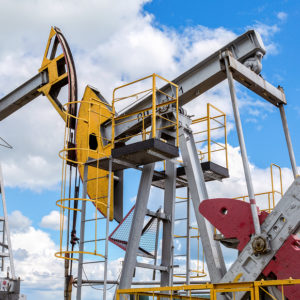Editor’s Note: For another viewpoint, see Point: End Fracking? Absolutely
There has been a lot of political chatter lately about banning safe hydraulic fracturing — better known as “fracking” — and ending natural gas and oil leasing on federal land.
But the reality is, we should be celebrating and expanding the use of this advanced technology for the many benefits it has brought in recent years.
Those benefits include economic growth, increased energy security, emission reductions and consumer savings — all because of modern fracking, which is used for drilling 95 percent of new wells in the United States today.
A new economic analysis conducted by OnLocation has shown that if some politicians get their way and ban fracking and federal natural gas and oil leasing, the consequences could be devastating on many levels.
It finds that American families — even while consuming less energy — could pay, on average, $618 more each year due to higher prices for gasoline, natural gas, electricity and heating oil.
The analysis also shows that the United States could lose hard-earned progress toward energy security, returning to dependence on foreign suppliers for 21 percent of our total energy needs by 2030.
Perhaps most frighteningly, the domestic economy could lose $7.1 trillion in cumulative GDP and millions of jobs through 2030, potentially triggering a recession.
Meanwhile, the use of fracking continues to bring good news across the board.
Natural gas was the major reason the United States has reduced emissions more than any other nation on earth, even while producing the most natural gas and oil.
Just last month the nonpartisan International Energy Agency issued its latest report on global carbon-dioxide emissions, finding that global energy-related carbon-dioxide emissions flattened in 2019 — even as the world economy expanded by 2.9 percent — in large part due to the increased use of natural gas.
In the United States, we recorded the largest emissions decline of any country, down 140 million tons from the previous year.
The IEA’s executive director even referred to the findings as “grounds for optimism that we can tackle the climate challenge this decade (and) evidence that clean energy transitions are underway.”
It’s clear that clean natural gas is integral to reaching domestic and global emissions-reduction and climate goals.
Its production — enabled by modern hydraulic fracturing and horizontal drilling — offers affordable, reliable and cleaner-burning energy, and remains fundamental to the dual challenge of meeting energy demand while protecting the environment.
So it’s no wonder that natural gas use is projected to grow for the foreseeable future.
We can all agree that reducing emissions must continue to be a priority.
A ban on the technology that has single-handedly led the United States to reduce emissions more than any other nation — while supplying the energy needed by our modern society — will only serve to erase a generation of American energy progress.
That progress owes a debt to the powerful combination of continually improving industry practices, advancing state programs, and federal environmental statutes — all working together to provide an effective structure that allows for the essential development of the nation’s oil and natural gas resources while protecting the environment.

